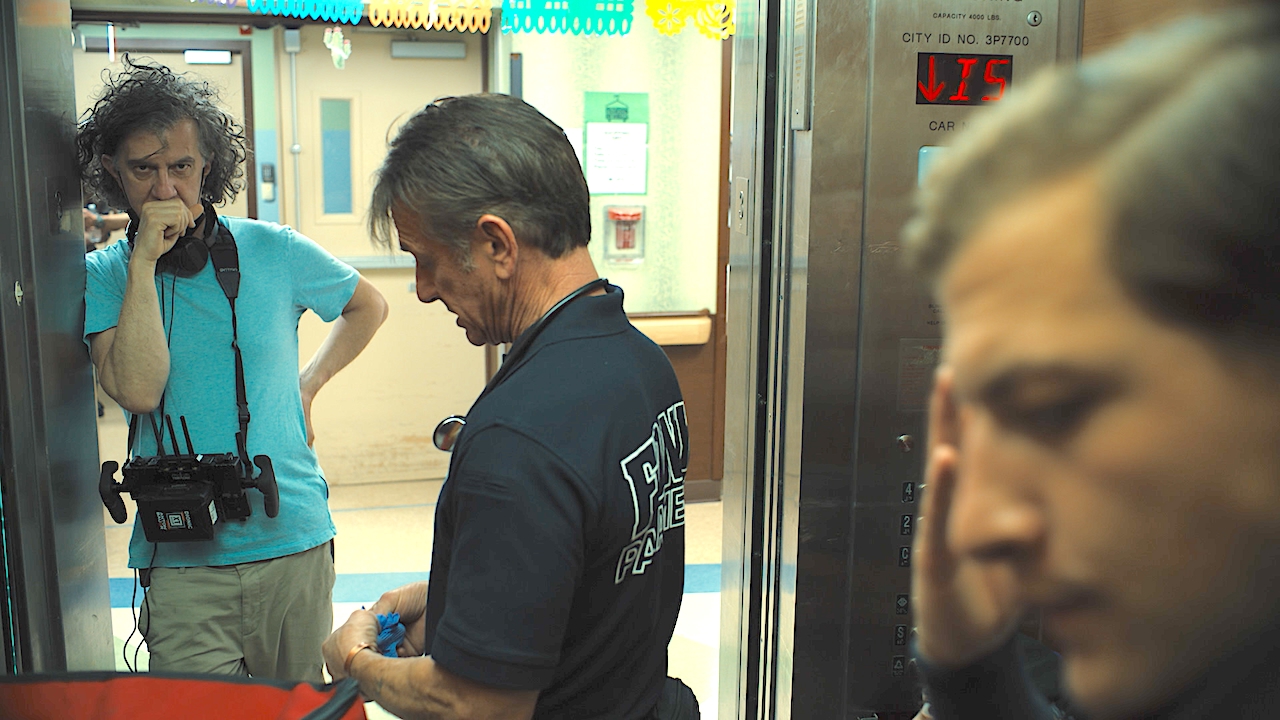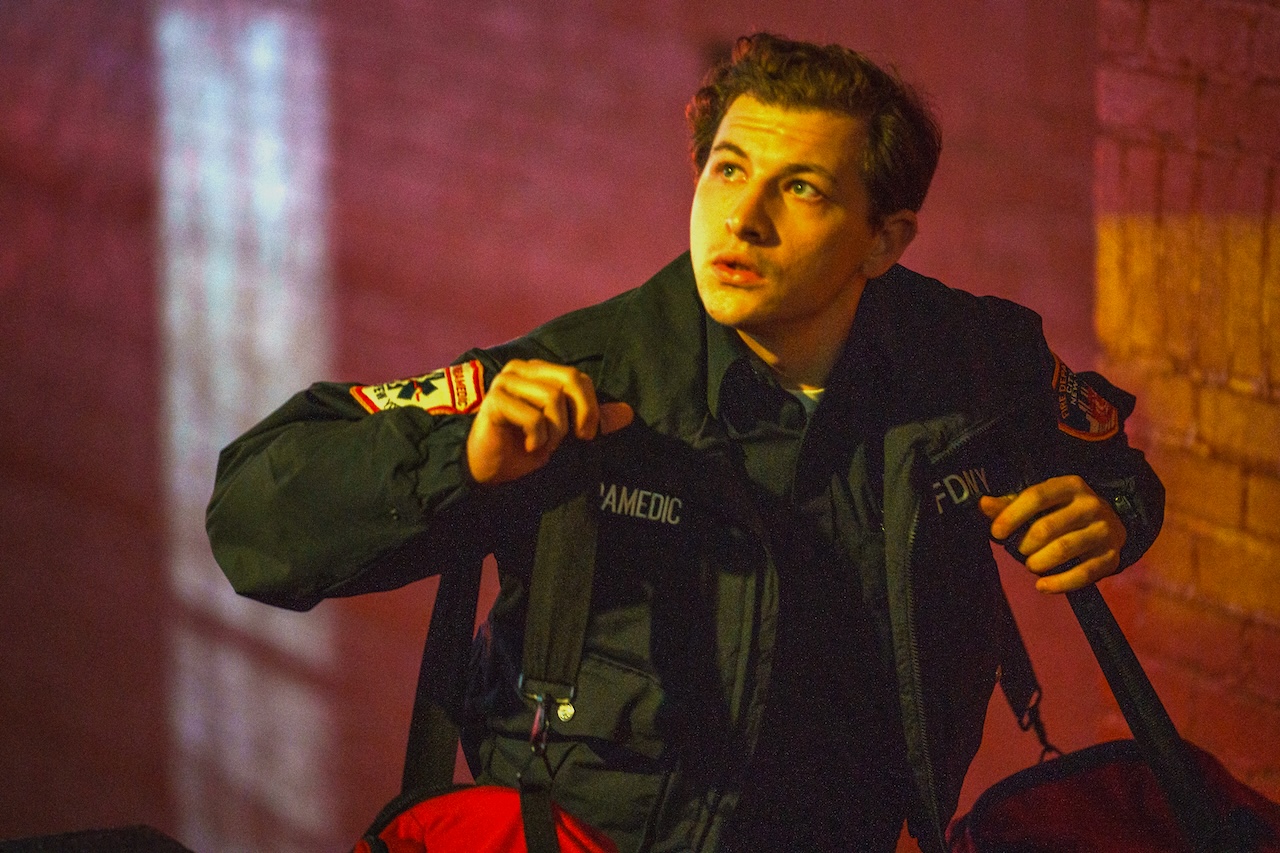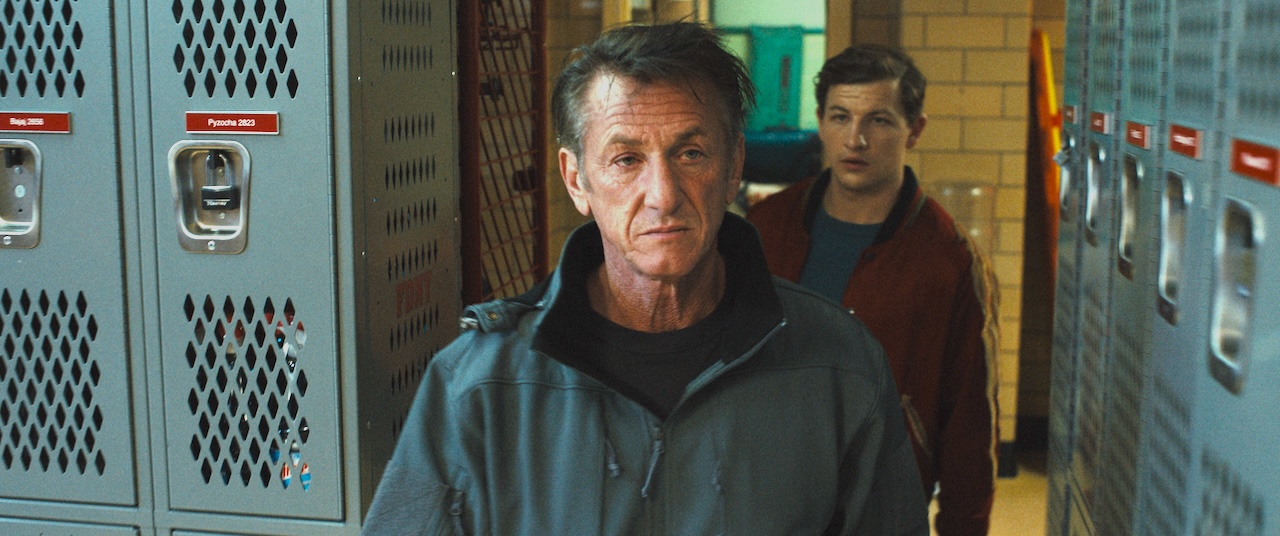“When everything is meaningless,
including the life or death of the people around you,
then the door is left open to be evil, really fucking evil.”
Shannon Burke – Black Flies
Asphalt City tells a gritty story of two paramedics, Ollie Cross (Tye Sheridan), a rookie assigned to the New York City night shift with his jaded partner Gene Rutkovsky (Sean Penn). As they explore the murky underbelly of their Asphalt City neighbourhood, their lives of chaos, uncertainty and quick thinking come with moral ambiguity and ethical dilemmas.
Tye Sheridan who plays Ollie Cross and director Jean-Stephane Sauvaire spoke with Creative Screenwriting Magazine about the long path to getting their film made.
Adapted from Shannon Burke’s quasi-autobiographical 2008 novel, Black Flies, Sauvaire casts his mind back to when he first moved to New York and wanted to film the city from the inside out. “The novel tells a story of a young paramedic who’s gonna try to understand himself through his job and he’s gonna be confronted by the violence of the world,” declares Sauvaire.
Rather than exclusively focusing on the job of paramedics answering 911 calls all night, the director focused his story on the humans that do the job. He’s interested in how violence affects your life whether you’re in a war zone, in prison, or answering 911 calls. Paramedics are on the front line, and Sauvaire wanted to illustrate how they survive and protect their mental health in the volatile system they inhabit.
“The weight and responsibility that they carry in society is interesting. Paramedics are the people that you call in your worst moments, when you’re on the edge of death. To go from one call to the next, all day long for twelve hours is hard. It takes a very special person to be able to carry that responsibility, and for the most part, I think they’re underappreciated and undervalued, but mostly because they’re misunderstood,” says Tye Sheridan. Paramedics need to admit their mental health challenges and the stigma attached to them and seeking help isn’t shameful.

Jean-Stéphane Sauvaire (director), Gene (Sean Penn) & Ollie (Tye Sheridan) Photo courtesy of Vertical/ Roadside
Sheridan expands how paramedics deal with trauma, both their own and their callers. “Who’s responsible for healing or for being someone’s protector? What happens when paramedics become sick? What happens when someone else’s trauma, burdens and sickness starts to infect them? How does it affect their personal lives and how does their work bleed into their relationships?”
So, for Sheridan, Ollie’s character was the entry point into Alphabet City, more than the paramedic work itself. “I need to connect to the main character of the movie on many levels.” They started trying to get this film project off the ground since 2018, so they had sufficient time to mine the complex layers of Ollie and Gene’s characters.
Adapting Black Flies
Burke’s novel was set in Harlem during the nineties, so Alphabet City needed to reflect a more contemporary story. Black Flies is set in the world of the crack epidemic and the main character was a Vietnam War veteran. This was changed to a 9/11 survivor.
“The character’s central dilemma never changed that much. It was more the world around Ollie that changed over the course of the project’s evolution,” says Sauvaire. The locale was changed to Brooklyn which reflected the craziness of the neighborhood where Sauvaire lived when he first moved to New York. He didn’t want to recreate Harlem in the nineties. The director wanted to film something that reflected his reality and was more universal in its scope.
The essence of the book of a young paramedic wrestling with the chaos of his job, his personal trauma, where he stood in it all, and his moral dilemmas remained intact. Who should you save? A large part of the adaptation and development process was getting close to the world and the people in it.
Relationship Between Ollie and Gene
Ollie and Gene share a tense dynamic stemming from the naïveté of the rookie wanting to learn and the jaded practicality of the veteran who understands that not everyone can (or wants) to be saved.
Initially, it’s a straight mentor/ student arrangement, but as the two men get to know each other, they more resemble father and son. “It’s also a mirror of themselves. Gene could be the older version of Ollie after twenty five years on the job,” says Sheridan.

Ollie Cross (Tye Sheridan) Photo courtesy of Vertical/ Roadside Attractions
The progression of Ollie’s character shows that he too is being ground down by the tough decisions he needs to make. The more time you spend on the job, the greater your ability to express and process your internalized trauma.
Ollie doesn’t fully relinquish his optimism. He thinks, “You can save everyone because everyone’s worth treating and the system’s not as broken as you think. Sean’s character Gene brings a more cynical pessimism to that… more realism”
Gene certainly begins as Ollie’s mentor, but the points of view flip. “At first, it is the basic kind of teacher student relationship and then I think Gene learns more from Ollie,” notes Sauvaire.
Gene is no longer in full control and nobody can change his mind about the nature of the job. He’s struggling emotionally, and probably has been since he was younger. Both Gene and Ollie are struggling, not only with the present, but also with the future.
The line between good and evil becomes fuzzier as Asphalt City progresses. Tolerating good and bad situations have their limits, and some times, paramedics need to make difficult life or death decisions.
“Everyone is a human being and we’re all emotional. We all carry certain weight in our lives and we’re under this impression as a as a society, that there are certain people who need to be strong and morally sound all the time,” adds Sheridan.
“It shines a light on these other areas when these characters constantly see death, sickness, and the ugliness of society. It can really get to you and it can condition you into thinking that humanity is not beautiful, or maybe what they’re doing doesn’t matter. People start to spiral out of control, and sometimes they don’t know how deep they’re going, and it obviously has an effect on society.” That’s why it’s essential that paramedics have the mental health support they need. Asphalt City seeks to raise awareness of the little-discussed issue.
The emotional stakes are high for paramedics, but so too are the rewards. “It becomes like an adrenaline. It’s kind of an addiction,” states Sauvaire.
“I think the highs definitely make up for the lows. Having that direct experience of saving somebody’s life for the first time as a direct result of everything that you’ve been contributing to society is amazing feeling,” iterates Sheridan.
Alphabet City spent many years in development before it was made. This allowed Tye Sheridan ample time to examine the parallels between Gene and Ollie’s characters. “Their relationship, the idea of their family unit (that they both have or lack) became really fascinating. It started to embody something that was more distilled for Ollie.”
“During the first phase, Ollie meets the girl and then they fall in love. Then they make love and she has a child. Later, there’s the breaking of the family unit which mirrors Gene’s character. The idea of allowing them to be tethered by the same trauma which burdens their relationships in their personal lives, became a major focus of the evolution of Ollie.”
Gene and Ollie have been through the emotional wringer. Despite their ordeal, there is light at the end of the tunnel.
“I think it’s important if you follow a character into a deep, strong, and dark situation. We’re all human beings and there is always hope at then end. Human beings are strong, so I think it was important to show this stronger belief and passion for his job. Ollie finds his peace somewhere,” concludes Sauvaire.
